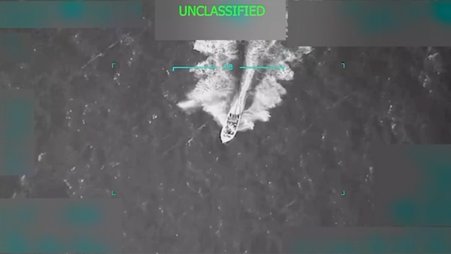Dear Friend of Press Freedom,
I’m Lauren Harper, the first Daniel Ellsberg chair on government secrecy at Freedom of the Press Foundation (FPF), and welcome to “The Classifieds.” Read on for this week’s most important secrecy stories, and actionable advice from our tech team on how you can help save government data.
From FPF’s tech team: Saving Government Data 101
President Donald Trump’s administration has been quick to purge information about “vaccines, veterans’ care, hate crimes and scientific research, among many other topics” from thousands of federal government websites. While the National Archives houses a pristine copy of the Biden White House website, it does not preserve most other government webpages from the Biden era.
Fortunately, a large effort by multiple U.S. organizations to archive government websites began before Trump’s inauguration led by the End of Term Web Archive. The easiest way to view the results is to enter any government web address into the Internet Archive’s Wayback Machine. Hundreds of terabytes of crawled data can also be downloaded from the “End of Term 2024 Web Crawls” collection.
The EOT crawl relies on lists of known and community-submitted web addresses, which are bound to be incomplete. Other groups and grassroots efforts are trying to fill in the gaps. The social network Reddit’s data hoarding subreddit, r/DataHoarder, has been used to publicize archives of larger datasets, such as the Center for Disease Control and Prevention’s datasets collection.
Anyone can join the Archive Team community using its dedicated tool, and new initiatives like Safeguarding Research are joining the fray. But efforts to archive data after an administration changes are a race against the clock. As of this writing, a file server of U.S. Census Bureau data — not included in the EOT crawl — was only partially archived due to the server being intermittently unreachable. So if you want to get involved, the time is now.
Reform the Presidential Records Act — or risk losing DOGE records
404 Media reported that DOGE will be subject to the Presidential Records Act rather than the Federal Records Act — something DOGE staffers have apparently confirmed.
This is a big deal. It would mean, among other things, that the public won’t be able to file Freedom of Information Act requests for DOGE records until five years after the end of this presidential administration. In other words, you’ll have to wait until 2034 to ask for DOGE records and hope they haven’t been destroyed in the interim.
This should serve as a wake-up call for Congress to reform the PRA. One of the most effective fixes would be eliminating the PRA’s disposal provisions that allow the president to single-handedly decide which records the public gets to see.
Who’s the archivist, anyway?
Trump fired Colleen Shogan, the archivist of the United States who oversees the National Archives and Records Administration, on Feb. 7 without cause.
The timing of Shogan’s removal is troubling. In addition to safeguarding the nation’s most important records, NARA also investigates when agencies lose or destroy records and works with agencies to declassify significant documents. Without a dedicated and principled leader, these efforts would be undermined.
The dismissal came a day after ABC reported that the White House was considering naming Secretary of State Marco Rubio to be the acting archivist. Jay Bosanko, the deputy archivist, is currently serving in that role, but it is unclear how long he will remain there.
The Vacancies Act allows the president to name any Senate-confirmed official to fill the position — so Rubio could serve as acting archivist, even though he is already overcommitted as secretary of state and the acting director of USAID and has no relevant experience that would make him a qualified archivist.
In case you missed it
Earlier this week I wrote about concerns that USAID’s records weren’t being properly preserved as DOGE works to decimate the agency. Read the full story if you’d like to learn more about the rules for handling dissolved agencies’ records.
What I’m reading
Forensics experts challenged the FBI. So the FBI tried to censor their conference (The Intercept). The FBI didn’t like the sound of an upcoming American Academy of Forensic Sciences workshop called, “Taking on the FBI,” and complained to the AAFS board about it. The board, which had previously approved the workshop, overwhelmingly agreed that the presenters should remove the material about challenging the FBI crime lab’s work — or else have the workshop cancelled.
Memory-Holing Jan. 6: What happens when you try to make history vanish? (ProPublica). Nothing good, as attempts to bury the Tulsa Massacre of 1921 show. Luckily, the government will be hard-pressed to erase the history of Jan. 6, thanks to the collective preservation efforts of news organizations, the EOT, and the Internet Archive.
Thanks for reading, and see you next time.
Transparently yours,
Lauren Harper
Daniel Ellsberg chair on government secrecy
Freedom of the Press Foundation





